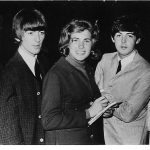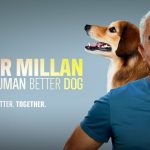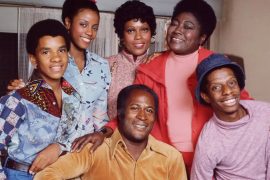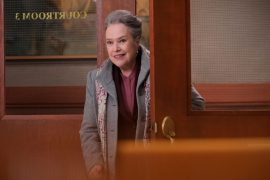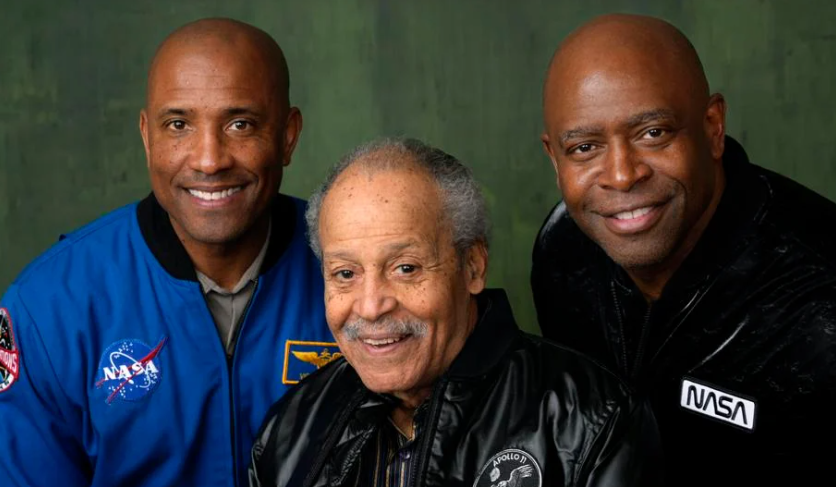
PASADENA, CA: Space — the final frontier.
More like the finally frontier for one African American astronaut who was left at the back of the spacebus during the glory days of the moon landings in the late 1960s and early ’70s.
Well timed to Black History Month, Nat Geo hosted an eye-opening TCA24 panel Thursday for their documentary feature, “The Space Race.” The movie, executive produced by Frank Marshall, premieres Monday, February 12 on National Georgraphic and next day on Disney+ and Hulu.
In “The Space Race,” directors Diego Hurtado de Mendoza and Lisa Cortés profile pioneering Black pilots, scientists and astronauts who, as they say in the release, “joined NASA to serve their country in space, even as their country failed to achieve equality for them back on Earth.”
Tell me about it, said Ed Dwight. He was the main attraction at Thursday’s press conference and delivered a long and passionate monologue detailing the politics behind his bumpy ride as part of the NASA astronaut program.
“I would have gone into space had the president not died,” Dwight, 90, told rapt reporters.
advertisement
The president he referred to was John F. Kennedy, who pledged to send a man to the moon and back by the end of the 1960s. According to Dwight, the president’s assassination in November of ’63 had a direct impact on his career.
Bck then there weren’t even any Black test pilots, said Dwight, an accomplished flyer who was singled out by the Kennedy administration to try and compete with the elite fly boys of the NASA space program.
Dwight thought people were kidding when the offer came to join the exclusive club.
“I thought it was a joke, thought guys were messing with my head,” he told reporters. His peers told him he’d never be allowed in this club.
His mother, however, turned him around. “You gotta do this,” she advised, “to help the condition of your race.”
Four days later he was at Edwards Air Force Base. He seemed to be sort of welcomed at first. “We wanted to hate you,” he heard from one recruit, “but you’re the funniest little dude we’ve ever met.”

Things however quickly turned nasty. Dwight heard the others say he’d be out in six weeks and there were complaints that the White House was “trying to cram a black guy down our throats” — except, as Dwight added, “they didn’t say, ‘black guy.'”
Still, as Dwight put it, “Kennedy needed the black vote.” The Civil Rights movement was in full swing. There had been meetings at Harry Belafonte’s house with black pilots and engineers. The feeling was that if somebody such as Dwight made the NASA cut, it would be a giant leap for blacks hoping to get into aeonautic training.
Trouble was, the guy running the NASA space program, famed flying ace Col. Chuck Yeager, did not need the black vote. Week after week, Dwight was told things such as, “I got 150 white boys on this list that are all better than you are.”
Dwight’s response: “Every street on Edwards Air Force Base is named after a dead test pilot — and they all happen to be white.”
Nevertheless Dwight persisted. He qualified for all four requirements. He was ranked among the top seven recruits. “I had everything they needed except the politics of it.” he said. So when Kennedy died that day 60 years ago in Dallas, so did Dwight’s dream. He never got his chance to be part of the Gemini or Apollo space teams.
Others on the Nat Geo panel did make the cut. NASA astronauts Victor Glover and Leland Melvin came later.
Melvin flew missions aboard the Space Shuttle Discovery in 2008 and 2009. Glover was the first African American launched to the International Space Station in November of 2020. He was thrilled to get the assignment, but at te time tried to downplay his part in history.
“The truth is, it’s great, I’m grateful to be going on a mission serving my country and humanity. But it’s a little sad that it is 2020 and I’m the first.”
“The Space Race” premieres Monday, February 12 on National Geographic and next day on Disney+
and Hulu.


